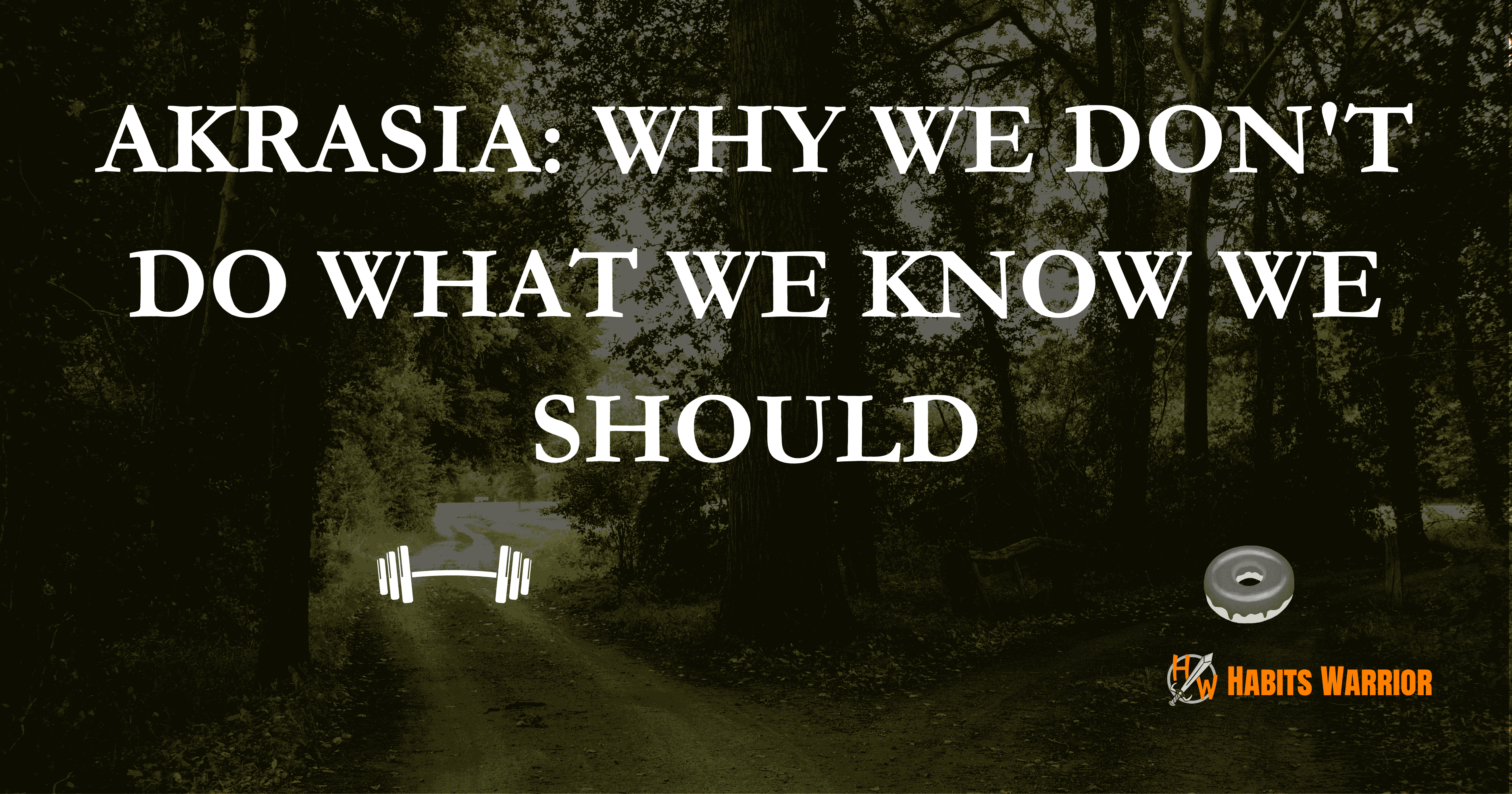
The Enemy Inside the Gates: Why We Don't Do What We Know We Should (The Akrasia Effect)
During my philosophy studies, I was always haunted by a concept from the ancient Greeks: Akrasia. It's often translated as "weakness of will" or "incontinence," but its meaning is more profound. It describes the state of knowing what the right thing to do is, yet failing to do it.
It was a perfect description of my own struggles. I knew I should be working on my thesis. I knew I should go to the gym. I knew which foods were healthy. And yet, I would consistently choose the path of lesser resistance—procrastination, junk food, and inactivity. I was living in a state of Akrasia, and the intellectual knowledge of the problem did nothing to solve it.
- Socrates and Plato famously wrestled with this idea. For them, true Akrasia was almost impossible, as they argued that no one would willingly choose a lesser good over a greater good if they truly understood the difference. (Protagoras, 358d).
But this is where theory and practice diverge. We do choose the lesser good all the time. Why? Because the lesser good (watching another episode, eating a donut) often has an immediate, guaranteed reward. The greater good (getting in shape, finishing a degree) has a reward that is distant, abstract, and uncertain. Our brains are hardwired to prefer immediate gratification.
This is the modern battle against Akrasia. It's a war fought between our present self who craves comfort and our future self who deserves better. To win, we can't just rely on willpower. We need to rig the game in favor of our future self by making the rewards for good actions more immediate.
The Habits Warrior Bridge:
This is the problem I obsessed over when designing Habits Warrior. How do you make the long-term benefit of a good habit felt today? How do you create an immediate reward for an action whose real payoff is months away?
The answer is the "Warrior Stats" system. The system is designed as a direct counter-attack against the Akrasia effect.
When you complete a workout, you may not see a physical change in the mirror. That reward is in the future. But when you check off "Gym Session" in Habits Warrior and see your Strength stat permanently increase from 36 -> 37, you have received an immediate, tangible reward for your effort.
That +1 is a visible victory for your present self. It provides the immediate gratification needed to override the temptation of a bad habit. It transforms the abstract goal of "being healthy" into the concrete reward of "leveling up," giving you the ammunition you need to win the daily battle against Akrasia.
Sources:
- Plato. Protagoras. (The specific reference 358d is part of the Socratic dialogue where the nature of choosing good over evil is discussed).